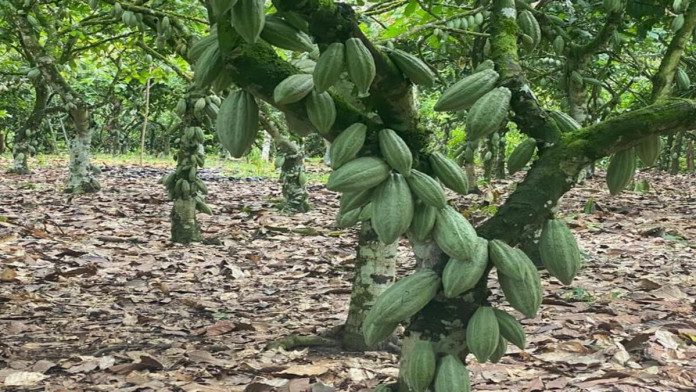News in Brief:
– Cocoa farms in Atwima Nwabiagya South Municipality, Ghana, are threatened by mining exploration.
– While the mining firm claims to have permits and paid compensation, the country’s cocoa board raises concerns about potential harm to the cocoa industry.
Over 400 acres of cocoa farms in the Atwima Nwabiagya South Municipality are at risk due to exploration activities by a foreign-owned gold mining firm, a news report said.
The exploration by the firm, MIGOP Mining Limited, threatens to disrupt recent efforts by the Ghana Cocoa Board (COCOBOD) to rehabilitate cocoa farms in the area following an outbreak of Cocoa Swollen Shot Virus Disease.
The communities most affected by the mining exploration include Apuoyem, Brahebebome, Brosanko, Ouagadougou, and Nkotonmire. These communities are significant cocoa producers, contributing over GH¢316,000 ($23,500) to Ghana’s cocoa output according to the body.
In the light of this development, Professor Michael Kwarteng, Head of Anti-Illegal Mining Units at COCOBOD, raised concerns about the impact of mining activities on cocoa production. He highlighted the lack of communication between the company and the regulatory board, despite regulations requiring mining companies to consult with relevant agricultural bodies before acquiring concessions.
However, while acknowledging the destruction of some cocoa farms during exploration, MIGOP maintains they have the necessary permits from the Minerals Commission and have compensated affected farmers at government rates. The company claims they are currently in the exploration stage and will only begin full mining operations after further development.
This situation reflects a wider conflict in Ghana between the mining and agricultural sectors. While mining can bring economic benefits, it can also have a detrimental impact on agricultural production, a crucial source of income for many Ghanaians. The potential loss of these cocoa farms could affect livelihoods and Ghana’s cocoa industry.
Therefore, finding a solution likely requires better communication and collaboration between mining companies, regulatory bodies like the Minerals Commission, and agricultural institutions like COCOBOD.



